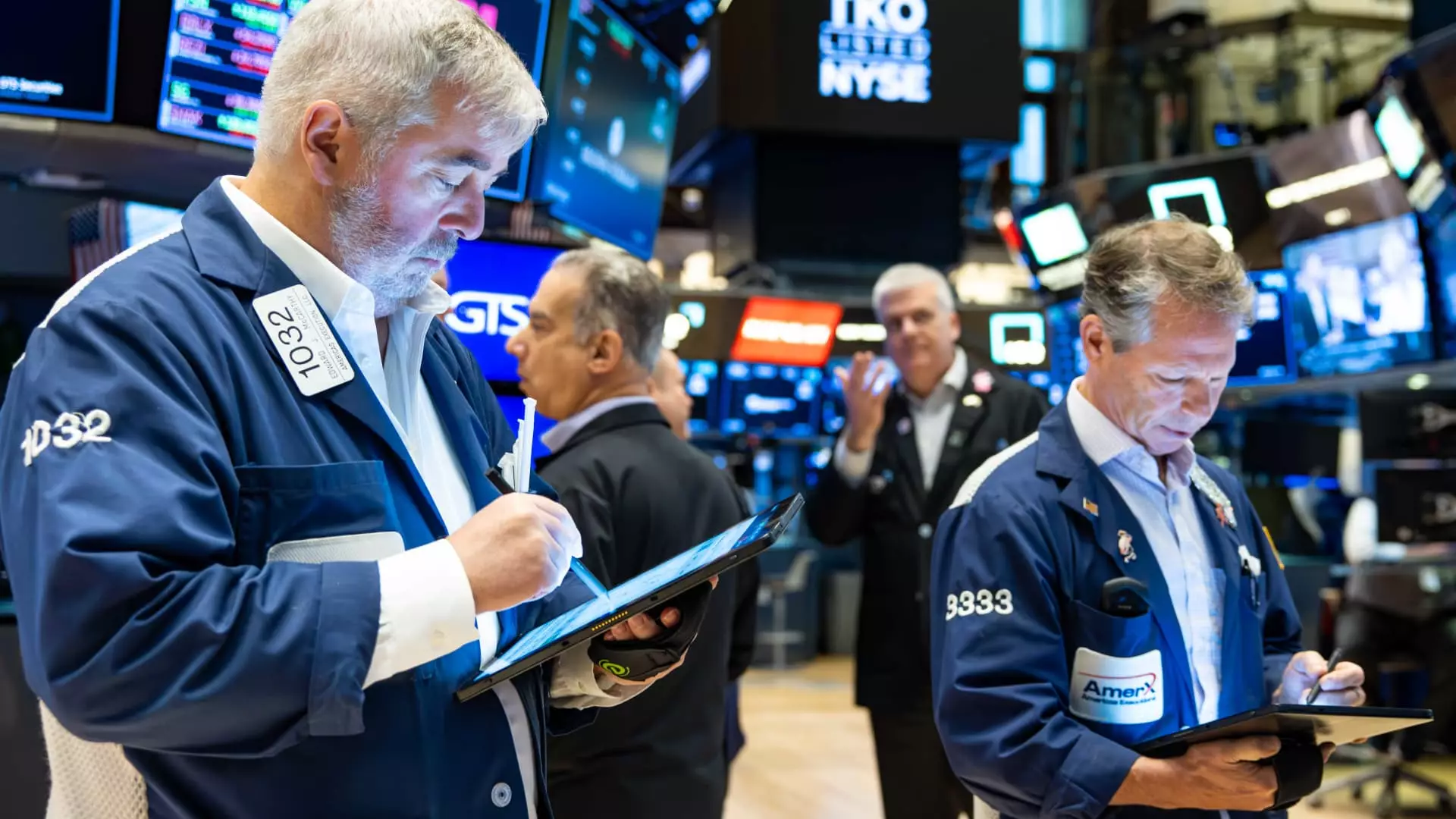In the realm of investing, staying abreast of market fluctuations is essential, especially during tumultuous periods marked by political and economic changes. This week, the CNBC Investing Club with Jim Cramer provided crucial insights as the markets reacted to President-elect Donald Trump’s proposed tariffs on imports. On a typical Tuesday morning meeting, Cramer encapsulated the pressing themes affecting investors and dissected the performance of key stocks in light of fluctuating economic indicators.
On Tuesday, the S&P 500 and Nasdaq Composite experienced moderate gains, reflecting a general optimism among investors adjusting to Trump’s tariff announcements. Conversely, the Dow Jones Industrial Average showed a slight decline, emphasizing the mixed sentiment in the market ahead of the Thanksgiving holiday. As investors prepare for the market’s closure on Thursday and a shortened trading day on Friday, Cramer cautioned his followers against the typical holiday trading patterns.
This year, Cramer advised against the ingrained practice of buying shares on Wednesday and selling them during the Friday session. Instead, he urged Club members to remain patient and reassess the situation in the following week. His emphasis on avoiding rash decisions during this volatile period showcased his strategic approach to investing, focusing on sound stocks rather than seasonal trends that may not hold firm in the face of unexpected market shifts.
Business performance this week painted a stark picture for several companies. Notably, Best Buy’s stock plummeted by 8%, attributed to its underwhelming earnings report. This drop underscored the intense scrutiny that retailers face in a landscape increasingly influenced by online competition and changing consumer habits. Cramer indicated that a comprehensive analysis of Best Buy’s fiscal performance would be made later, providing further context to this disappointing outcome.
Similarly, Stanley Black & Decker saw a decline of 3.5% due to concerns surrounding the implications of Trump’s tariffs on its operations in China. Despite this downturn, Cramer maintained a long-term investment perspective on Stanley Black & Decker, highlighting a commitment to enduring quality stocks over short-term volatility—a testimony to his investment philosophy that emphasizes resilience and adaptability.
In sharper contrast, Wells Fargo’s stock rose by 0.6% following unconfirmed reports suggesting the potential lifting of a $1.95 trillion asset cap imposed by the Federal Reserve. This cap, put in place as a protective measure after prior misconduct, has been a thorn in the side of Wells Fargo’s growth strategy. Cramer viewed the prospect of alleviating this restriction as a positive development, integral to the bank’s turnaround narrative.
However, Cramer cautioned against impulsively buying the stock following its upswing, advising investors to wait for a potential pullback before considering reentry into this space. His approach underscores the importance of strategic timing in investment decisions—a critical lesson for market participants navigating the uncertainties of the financial landscape.
The session also highlighted significant challenges facing Morgan Stanley as its shares dropped over 2%, prompted by a Wall Street Journal report revealing inadequate risk management protocols within the firm’s wealth management division. Cramer’s disappointment resonated strongly; the report raised alarm bells regarding the integrity and viability of Morgan Stanley’s operations.
Adding to this precarious situation was HSBC’s downgrade of Morgan Stanley’s stock from “buy” to “hold,” citing an unfavorable risk-reward outlook. Cramer’s advice for investors was clear: the stock was not a sound buy at this juncture, advocating instead for caution until clearer signs of recovery emerge.
Jim Cramer’s recent insights serve as a valuable reminder of the complexities surrounding market investments, particularly amid periods of instability. His emphasis on staying grounded in quality investments, being mindful of broader economic shifts, and exercising patience in decision-making resonates as a guiding principle for investors navigating today’s turbulent economic waters. As the CNBC Investing Club continues to monitor market trends and corporate performances, the lessons learned from their analyses will be crucial for making informed and strategic investment choices in the future.

